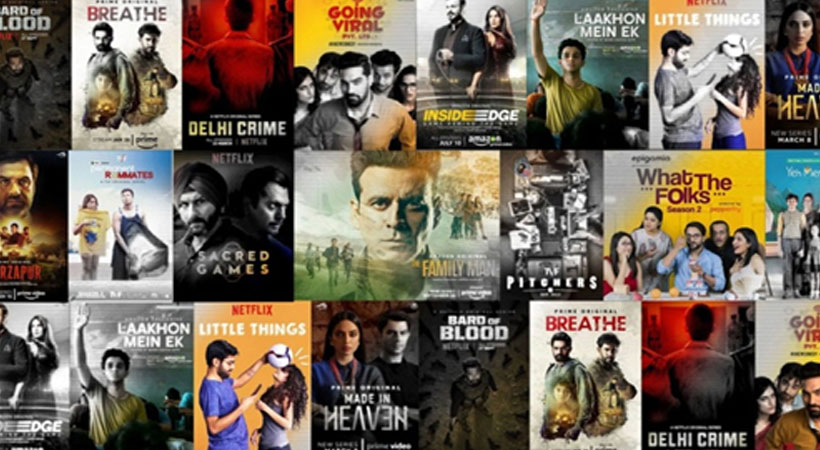Web series is the new trend in online platforms, especially after the lockdown when people were all forced to confine in the four walls of their home. It won’t be surprising to say that during the time of pandemic the web series have taken the place of movies, the youth being the main consumers of this latest trend. Even though the idea of web series is ‘not very Indian’, the boom of web series has indeed created a paradigm shift in the television viewing tradition of Indian society.
In simple words, web series is a series of videos narrating a story episode after episode through the internet platform. The episodic nature is one of the major features that makes the web series the favourite of the youth. The ease of place and time and the availability of non-censored content attract the young audience. Online platforms like Netflix, Amazon Prime, Zee etc. are streaming their own web series challenging the monopoly of the melodramatic serials. The matured and diverse content and issues dealt by the web series make it the favourite of the younger generation. The creative freedom offered by the web series also attract the directors pushing them more towards web series making. It all started in 2014, with the streaming of the first Indian web series ‘Permanent Roommates’ that garnered the attention of millions of youngsters in India. From there on, in the past few years’ web series have become the new ‘addiction’ of the Indian youth. The content variety offered by the web series is much appreciated by the younger generation and they look forward to stories to which they can relate to or that excite them. The web series often brings up contents that televisions would not dare too much. The outlandish world of TV serials is successfully surpassed by the web series within the span of few years. In fact, Indian web series like Sacred Games and PaatalLok have helped India to establish its own space in the world of web series. If the much exciting world of web series was purely a ‘western thing’ year before, now the web series culture is ‘too Indian to be ignored’.



















